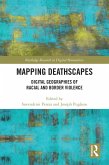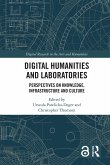This book presents the current state of the art in the field of e-publishing and social media, particularly in the Arabic context. The book discusses trends and challenges in the field of e-publishing, along with their implications for academic publishing, information services, e-learning and other areas where electronic publishing is essential. In particular, it addresses (1) Applications of Social Media in Libraries and Information Centers, (2) Use of Social Media and E-publishing in E-learning (3) Information Retrieval in Social Media, and (4) Information Security in Social Media.
Dieser Download kann aus rechtlichen Gründen nur mit Rechnungsadresse in A, B, BG, CY, CZ, D, DK, EW, E, FIN, F, GR, HR, H, IRL, I, LT, L, LR, M, NL, PL, P, R, S, SLO, SK ausgeliefert werden.









